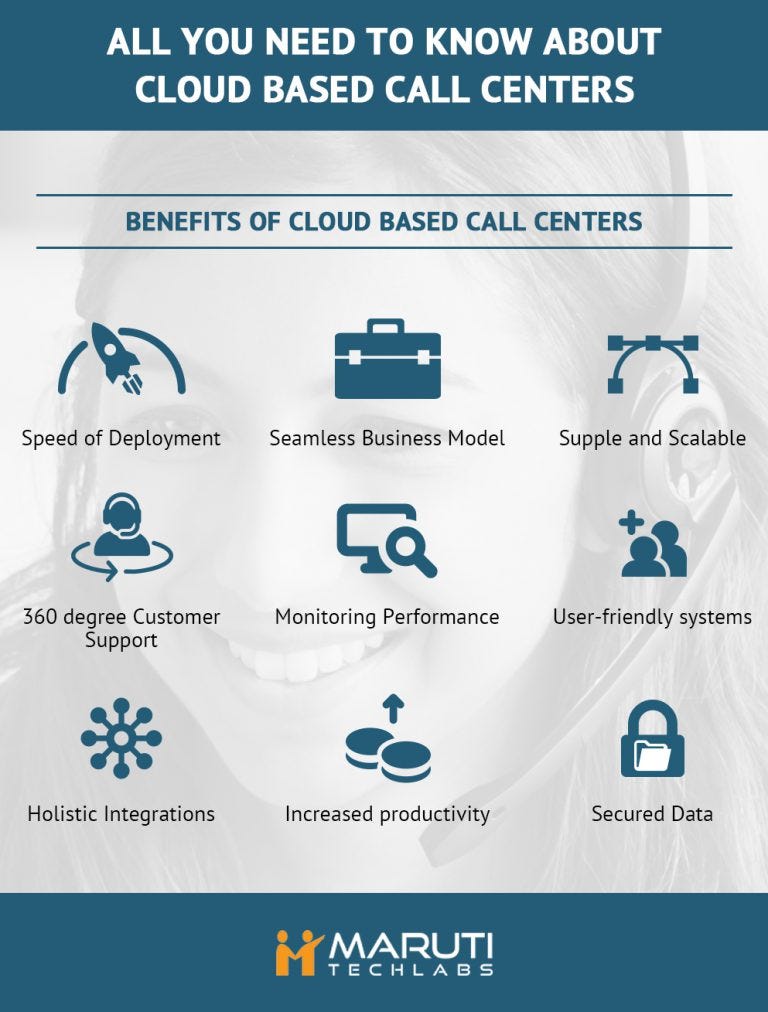In the last article, we looked at how a cloud-based called center is a better alternative to an on-premise one. In fact, studies from The State of Customer Experience 2017 report show how cloud call centers are replacing the on-premise call centers with a migration of 39% contact centers in the United Kingdom moving to cloud-based and 57% chalking out an action plan to replace their on-premise center within the next 3 years.
“But what are cloud-based call centers?” one may ask
Cloud-based call centers are nothing but a network-based service in which a provider owns and operates call center technology. Thereby providing its services remotely to businesses in a subscription model. Cloud-based call centers are offering an innovative way to approach the pitfalls of your business.
They are increasingly becoming common because of the benefits of the solution made readily available as a service. Businesses continue to value cloud-based platforms as they offer features that improve customer interaction, driving customer satisfaction, as well as identify areas within the organisation that would best benefit from the implementation of this model. Ultimately, providing customer delight is the end goal that all call center companies want their employees to achieve and if a cloud-based call center helps them achieve that, they’re bound to make use of it given the myriad of benefits it tends to offer as compared to an on-premise center.

Cloud-based call centers are a part of the organizational strategy for those who believe in high profitability by minimizing operational costs and improving the overall quality of the customer service and customer experience. Organisations today need to focus on streamlining their technology so as to benefit customers by creating a profitable customer engagement hub with low infrastructure expenses.
- Speed of Deployment — Given that they are hardware free, the implementation of such systems is quick, and there is no hassle in the setup and installation processes pertaining to your business environment.
- Seamless Business Model — The use of cloud-based call centers allows users to seamlessly access systems with the help of an Internet connection and deliver better customer experiences at all times.
- Scalability — Different businesses have different requirements, however, the beauty of a cloud-based call center is that it can be scaled for your particular business operational needs.
- 360 Degree Customer Support — With cloud call centers being available anytime anywhere, customer support agents can respond to customer inquiries without any barriers.
- Monitoring Performance — With cloud-based contact centers, the focus can be more on overall agent performance and efficiency, which will directly contribute to higher levels of productivity and quality of service provided.
- User-friendly systems — Cloud-based solutions lead the way with ease of use and user-centric design, providing users with advanced technology. This allows call center agents to benefit from enterprise level functionality without the hassles of arduous training on outdated infrastructure as well as daily usability struggles.
- Holistic integrations — Call centers typically rely on multiple software systems that include Customer Relationship Management, call script generators along with help-desk tickets. Cloud contact systems offer one-click integrations with dozens of leading business tools and this goes on to result in an enriched agent experience where data redundancy is reduced significantly and efficiency as well as productivity is maximized. With a holistic integration system, decision makers can access multiple systems from a single location increasing their data-driven decisions.
- Increased Productivity — Cloud-based contact centers offer enhanced call monitoring process. Agents can work with a single, integrated dashboard by cloud-based technology taking effective decisions reducing overall agent turnover.
Today’s business demands agile technology supported with responsive decision making which results in superior customer service to stay ahead of the competitive clutter. It has become a necessary step for companies to adopt a systematic approach that enhances performance, channels support and engagement, reporting and analytics to successfully support a customer base where customer preferences keep changing. The cloud contact center solution provides a level of agility and transformational qualities that facilitate these objectives if leveraged strategically. This is important for the call center industry given that it is built on the premise of high availability. With cloud-based call centers, customers are bound to experience higher uptime, leading to reduced customer service issues and better ROI. The challenge for enterprises is in choosing the right cloud contact center solution and strategic partner to achieve these goals.